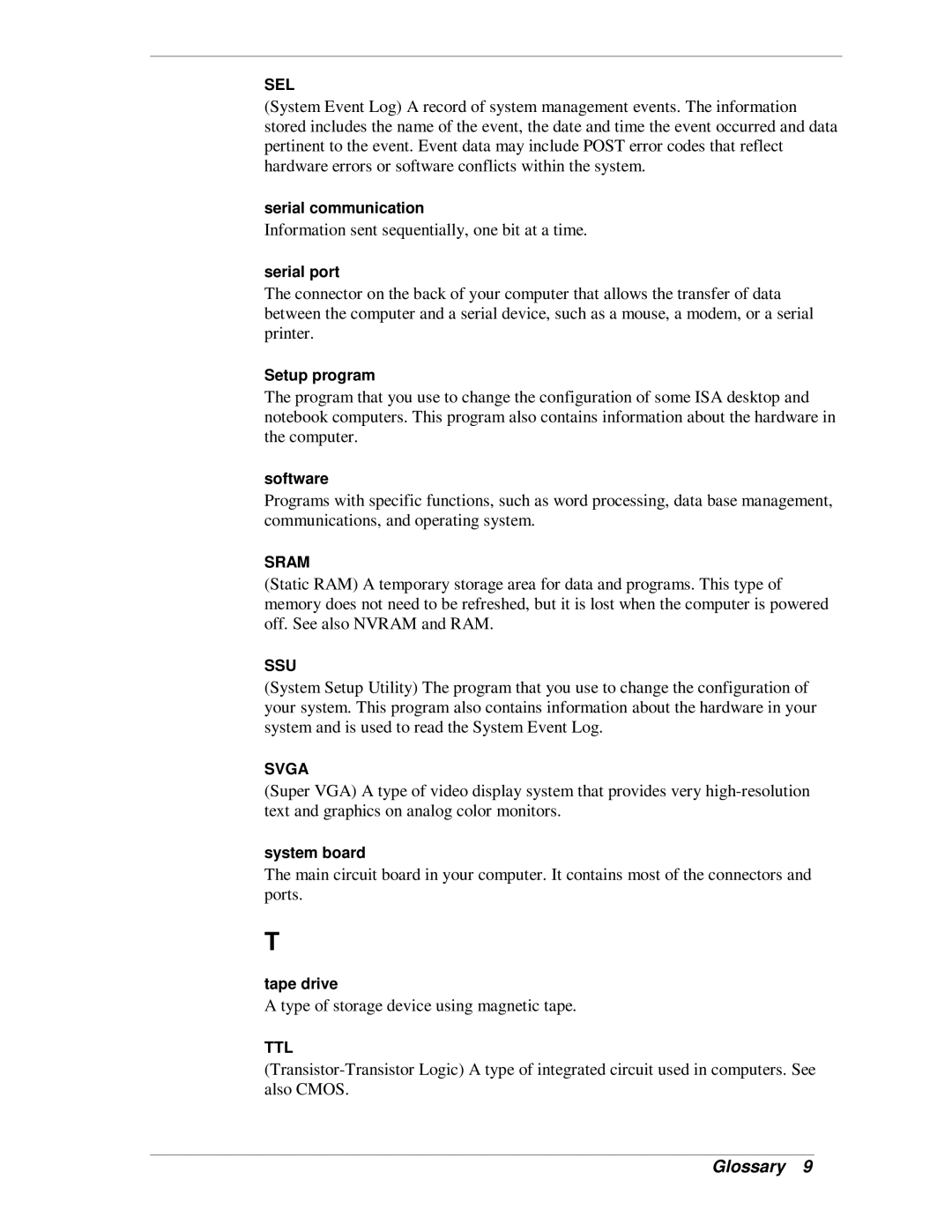
SEL
(System Event Log) A record of system management events. The information stored includes the name of the event, the date and time the event occurred and data pertinent to the event. Event data may include POST error codes that reflect hardware errors or software conflicts within the system.
serial communication
Information sent sequentially, one bit at a time.
serial port
The connector on the back of your computer that allows the transfer of data between the computer and a serial device, such as a mouse, a modem, or a serial printer.
Setup program
The program that you use to change the configuration of some ISA desktop and notebook computers. This program also contains information about the hardware in the computer.
software
Programs with specific functions, such as word processing, data base management, communications, and operating system.
SRAM
(Static RAM) A temporary storage area for data and programs. This type of memory does not need to be refreshed, but it is lost when the computer is powered off. See also NVRAM and RAM.
SSU
(System Setup Utility) The program that you use to change the configuration of your system. This program also contains information about the hardware in your system and is used to read the System Event Log.
SVGA
(Super VGA) A type of video display system that provides very
system board
The main circuit board in your computer. It contains most of the connectors and ports.
T
tape drive
A type of storage device using magnetic tape.
TTL
